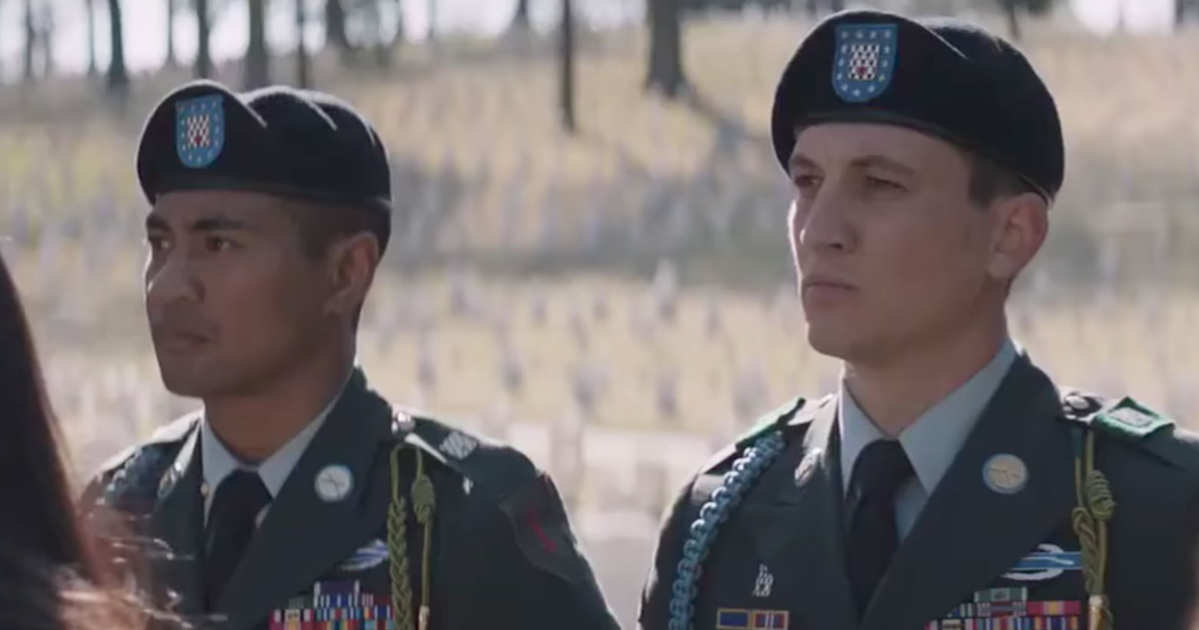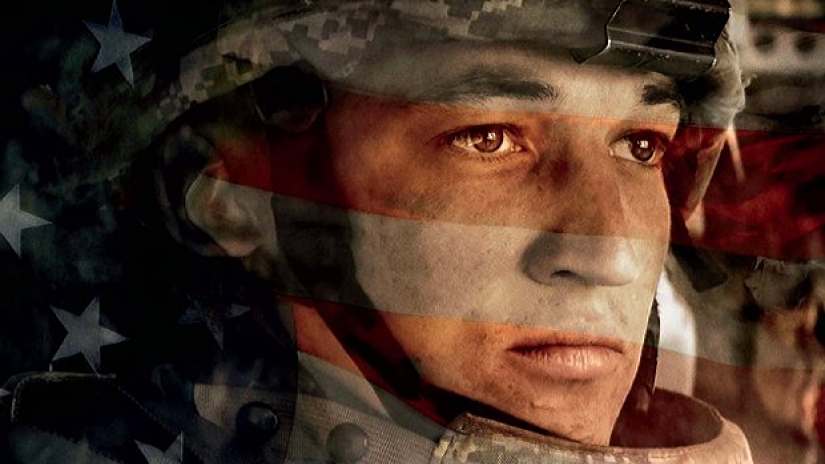Walking into a critic’s screening creates an unusual juxtaposition of feelings in the pit of your stomach. On the one hand, you’re acutely aware that you’re getting to see a movie months before its release, and as the theater staff usher you off to a screen with a form of pseudo secrecy, it’s easy to feel like you’re kind of a big deal.
But then you reach your seat, and the pomp and circumstance of the situation gives way to the sobering reality that you’re still just you, sitting alone in the dark as strangers mill about around you.
In that way, being a movie critic isn’t that unlike serving in the military. For many of us, we get so enthralled in the build up, in the training, in a lifestyle that gives you this palpable sense of being, or at least BECOMING, kind of a big deal… but then, once the “thank you’s” for your service subside, and your dress uniform is hung back up in the closet… it’s just you again, alone in the dark.
I walked into the screening for “Thank You For Your Service” just as I would for any other movie, but I’ll admit, a part of me was on guard. I knew from the trailer that this film had set out to depict the tragedy of veteran struggles with PTSD and suicide, and that’s a subject that is near and dear to my heart. I’ve lost three friends to suicide over the years. One was under my direct command. Just bringing up the subject alone is enough to spur a nauseas remorse… this sense that even if you could have prevented it, the world forgives you out of pity, so you can never really know for sure how much of the blame you assign yourself is warranted, and how much is just still there because guilt can be sticky sometimes.
Miles Teller plays the role of Adam Schumann: a soldier that comes home from a particularly rough deployment struggling to cope with his own guilt. In his case, its guilt over dropping an injured squad mate as he attempted to evacuate him. The fall caused a brain injury, severely limiting his friend’s recovery. Soon thereafter, Schumann is pulled off a patrol by his platoon sergeant – who promptly dies in his place in an attack.

Back home, Schumann and two of his squad mates each struggle to acclimate to normal life again, complete with the awkward passion I’ve rarely seen depicted on-screen between a returning soldier and his wife. We’re used to seeing heart warming YouTube videos of soldiers coming home, but we never see the awkward silence on the car ride home, as two young adults that have been apart for a formative year of their young lives realize neither of them are quite the same as they were when they last saw each other, and they pray the love between them is enough to bridge that gap in perspective. Someone I’ve never met said it best on Twitter earlier this week: when you get home, all the things you hoped would change haven’t, and all the things you prayed never would have.
When you’re gone, home isn’t just a place, it’s a narrative full of people who care about you and a life that makes sense. Such was the case for Schumann, Aieti, and Waller as they returned, already struggling under the weight of the loss and tragedy they experienced downrange. Like happens to so many veterans, that narrative version of home they’d been clinging to wasn’t waiting for them when they got back, though, and each of them tries to cope with that reality in a different way.
I won’t lie to you, this movie isn’t perfect. PTSD and depression don’t often manifest themselves in dynamic ways that make for an engrossing film. The reality of depression usually looks a lot more like a dimly lit basement, a half empty bottle of your choice in booze, and the perverse comfort you can sometimes achieve by letting yourself just feel the misery, instead of the usual tap dance you perform in front of friends and family. Jason Hall, who wrote “American Sniper” before penning the screenplay for this film, chose to depict that slow burn in, what felt to me like a bit of an abbreviated manner, making moments larger than they may have been for Schumann and his friends in real-time. In a way, the film depicts struggling veterans as more volatile and dangerous than I believe many of them to be, and despite being glad the story was being told, I couldn’t help but wince at the presentation of soldiers as either damaged or dismissive of other’s struggles, but nowhere in between.
To be fair, I presented that concern to Hall, as well as Miles Teller and Adam Schumann when we met a few weeks later. That interview will be the subject of another article, but Hall’s response was fair and reasonable. I told him I wished there had been more positive veteran characters depicted in his film, and Hall answered plainly that there were none shown because there simply weren’t any in Schumann’s life at the time. He truly was isolated and unsupported in many ways, and the movie attempts to convey that by showing how limited his support network, as provided by the military or the VA, truly was.

Already have an account? Sign In
Two ways to continue to read this article.
Subscribe
$1.99
every 4 weeks
- Unlimited access to all articles
- Support independent journalism
- Ad-free reading experience
Subscribe Now
Recurring Monthly. Cancel Anytime.

When “Thank You For Your Service” ended and the credits began to roll, other critics began speaking to one another softly, discussing what they’d seen and how they felt about it. I, on the other hand, stood and left abruptly. It wasn’t that I didn’t like the movie, it was that it stirred up a lot of emotions that I tend to keep securely stowed in pleasant conversation. I damn near ran to the parking garage, where I sat, safe and sound behind the tinted windows of my little car, and got my shit together. The movie may not have been perfect, but the goal of a movie like this to make your audience feel something, and Hall certainly succeeded in doing so in his directorial debut.
The acting in this film is solid, and Miles Teller’s depiction of Schumann stood out in particular. Although I felt that the movie lacked some of the nuance a real struggle with depression might have, Jason Hall did an excellent job of transposing what is a distinctly internal struggle into the lens of the camera, giving you a real sense of the war raging inside the characters on the screen. This isn’t a date movie, and to be honest, if you, like me, have lost someone to suicide, you might want to head to the theaters with some friends that’ll get it if you’re not eager to discuss the movie over beers when it’s over… but it is an important movie to see.
You don’t have to get every detail of being in the military, or every facet of the veteran experience exactly right to tell a story like this in the way it needs to be told. There are people who will watch this movie, unaware of how frustrating it can be to seek help through the VA, and have their eyes opened, for the first time to the idea that being a veteran isn’t all about being thanked at Applebee’s on Veteran’s Day. There are people who have never felt the nagging pain that comes with losing a friend, the guilt that comes with wishing you’d called a day earlier, or stopped by his room in the barracks, just to check in. Those people need stories like this to show them that this is a problem we can’t solve with hashtags on Twitter, or shared memes on Facebook. Those people need stories like this.
And maybe I do too.
“Thank You For Your Service” premiers on October 27th.
Images courtesy of Reliance Entertainment












COMMENTS